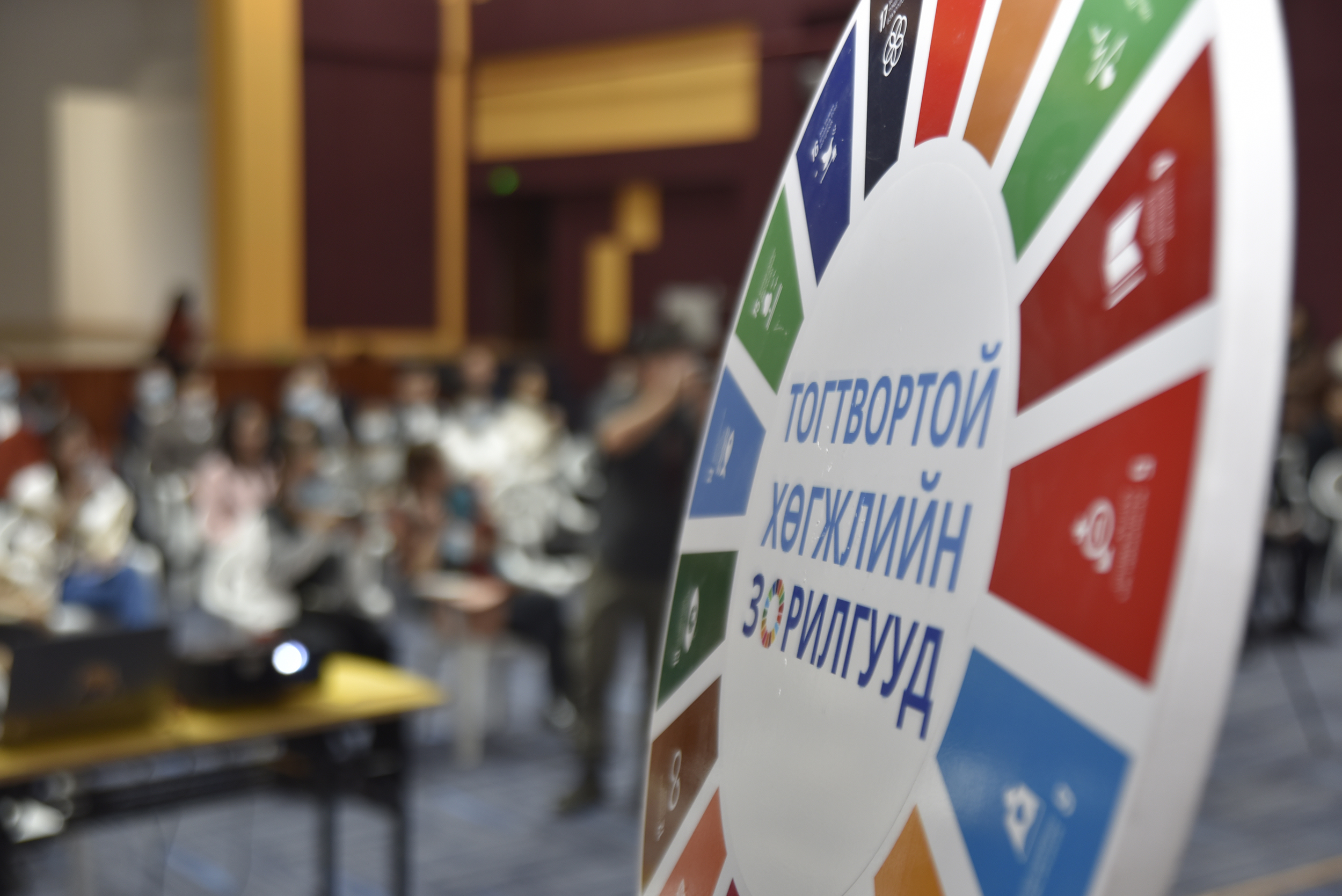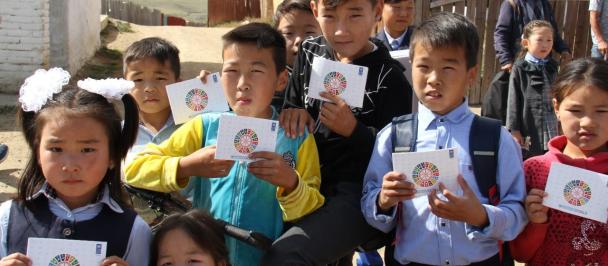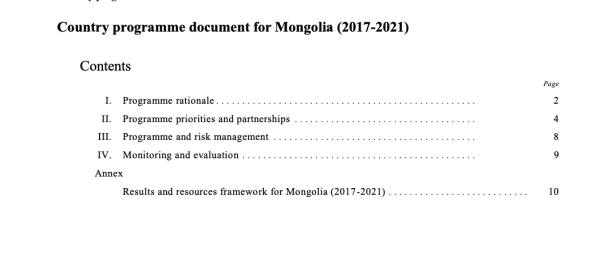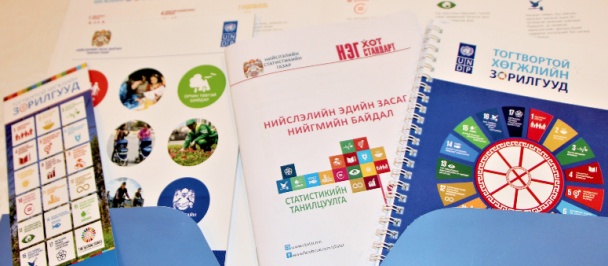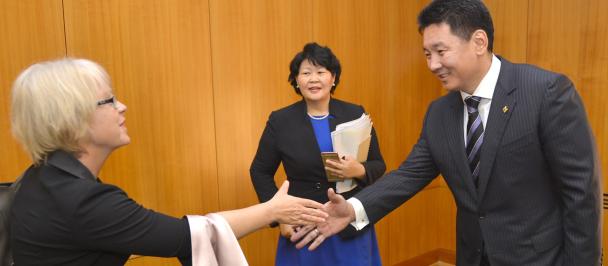Across the globe, efforts are being made to accelerate the achievement of the 17 Sustainable Development Goals by 2030, through youth participation and innovative solutions. Nonetheless, several challenges have threatened progress so far.
COVID-19 has imposed one of the most significant socio-economic risks in Mongolia, as observed and felt across the country. A joint report from the ILO and ADB estimated that youth unemployment in Mongolia was at risk of reaching 30.4% due to the socio-economic impact of the pandemic.
Young people are agents of change for innovative solutions and social progress for the achievement of the Sustainable Development Goals. Youth development is an integral component of Mongolia’s future sustainable development, and one of the best ways to accelerate youth development is through the building of a peer-to-peer learning platform where informed and trained youth can share their knowledge with others.
UNDP Mongolia’s “Supporting the Implementation of the 2030” project has implemented the #Activated2030 initiative in the capital, Ulaanbaatar city, and Orkhon and Zavkhan Aimags, in order to identify and resolve challenges to youth employment, and support the enterprising skills of youth in turning their ideas into action.
The #Activated2030-Orkhon Aimag initiative has been implemented since 2019, jointly with the Orkhon Aimag Governor’s Office. and the implementing partner of the “Localizing the SDGs in Orkon Aimag” subproject with UNDP. In Orkhon Aimag, youth aged 16-34 (as defined as youth in the 2017 Youth Development Law of Mongolia) constitute 24.3% of the Aimag’s total, and an astonishing 41% of the working-age population. Nonetheless, in 2020, 13.7% of youth aged 15-24 in Orkhon Aimag were unemployed and not engaged in any form of education, a figure higher by 1.5 points compared to the national average.
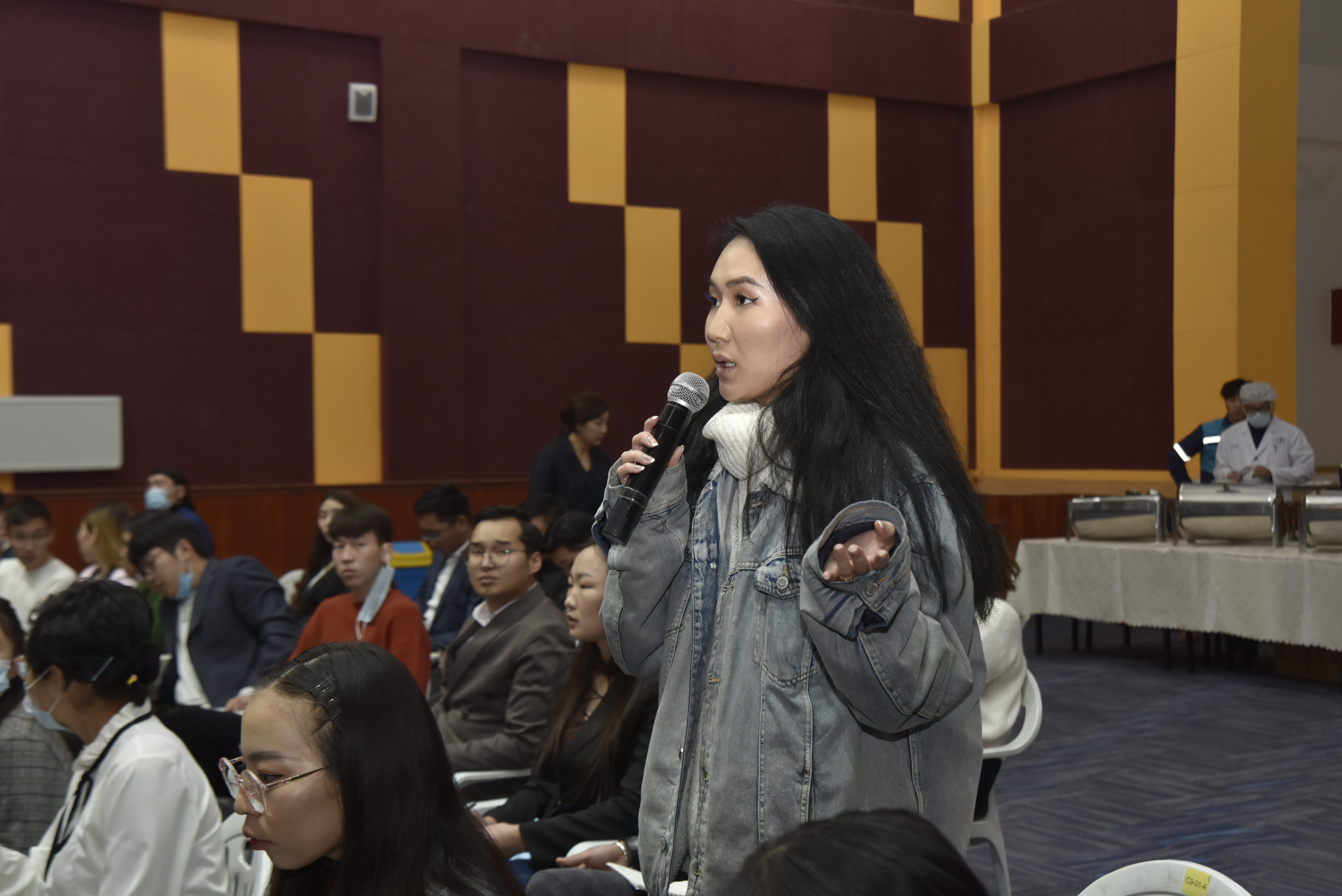
To facilitate youth demands and support youth unemployment, Orkhon Aimag approved its “2021-2024 Youth Programme” in June 2021, with the aim of supporting youth employment and volunteering opportunities. For the drafting of the new programme, lessons learnt from the “2015-2020 Youth Programme” were mentioned, as well as results of the #Activated2030 youth programme, which enabled youth engagement in SDGs achievement.
What’s more is that the Orkhon Agency for Family, Child, and Youth Development, conducted a “Orkhon Aimag Youth Development” monitoring survey with 1004 local youths. One major milestone set by the drafting of the new programme is that youth development was included in mid-term planning in line with the SDGs and the 2050 Development vision for the first time.
The #Activated2030 initiative under the UNDP SDG project aims to support the Innovations Hubs and the Youth Centers at Aimag level, making them accessible to all youth, and for the purpose of exploring topics related to enterprising activities, which include learning and applying #Activated2030 approaches. Each of them combines innovation and experimentation.
As part of this goal, a youth co-working space was opened in Orkhon Aimag on 27th October, 2021, for the purpose of helping to facilitate youth brainstorming on innovative ideas, and to build their start-ups. Prior to the opening of the co-working space, three consecutive forums, both online and in-person, were held with over 1000 youth participants and stakeholders. The focus of these forums was on supporting youth development, and accelerating youth participation and growth mindsets.
Ms. B.Tsatsral, Associate for the Youth Programme at Orkhon Aimag AFCYFD shared that, “despite limitations due to COVID-19, we are still able to make good progress. Next on the agenda are #Activated2030 in School, a youth campaign for high school students, and a #Activated2030-Inclusivity forum and workshop for youth with disabilities”.
The sessions on engaging youth with disabilities, comprising of 482 youths aged 15-34 residing in Orkhon Aimag, in particular highlight #Activated2030’s efforts to align its activities with the UN principle of leaving no one behind in inclusive and sustainable development, at both national and subnational levels.

 Locations
Locations